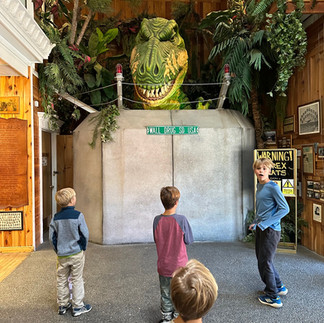
I remember it like yesterday-- the lights, the smells, the screams. My fond interest in the boyband quickly became a love affair after one concert in 1997. Posters hung over my bed, daydreams of meeting and marrying the lead singer-- instead of just making up dances, now I was joining a mob of crazed teenage girls who had lost reality but gained a new world of fantasy.
You know you have passed from a standard liking to an engrossment, when you carry the interest past its normal environment. For instance, you love a sitcom so much that you have posters of the actors in your room. They've left the TV and entered your decor. You love a beverage so much that you buy candles and t-shirts sporting the flavor. You're so obsessed with a season, that you observe it well into the rest of the year.
Once upon a time I was really "into" such things like, Friends, Fall, and coffee, to name a few. While I still really enjoy all of these things, there's not a longing for them that captivates me all year. When we define and label ourselves with interests, then our social media age takes it to the next, incongruous level. We are sucked into a song of musical chairs, vying for the last seat on the platform. We don't want to be left out of the group, so we prove our point by placing our identity in our passions.
Gender-identity. Podcasts subscriptions. Potter fans. Coffee connoisseurs. Twitter-X. Cancel Culture. P.C. Climate Change. Stanley Cups. Swiftie Concerts. The Chosen. Bubble Tea. Right vs Left.
Whether it's a trending topic or hot-button item, there are a million different areas that if you know only a little about them, you are considered out of touch with society and excluded from the game of musical chairs. But I would argue that these "interests" now draw clicks, divisions, and even mobs, screaming and vying for a chance to be at the boy-band concert. Such crazes leech themselves to social platforms and propagate identity mobs.
However, the concept of mob mentality is not new to our culture or our generation. In Acts 19:32 and many other historical events we see the confusion and chaos that exists within a mass gathering.
"Now some cried out one thing, some another, for the assembly was in confusion, and most of them did not know why they had come together" (Acts 19:32). Author Greg Morse explains this concept well--
"Mobs often depend on general slogans, unspecified grievances, vague (if any) purposes for uniting, and little to no solutions for change other than destruction. They think with their rage, and many get caught in the tide. Something important seems to be happening — many seem to know why they gathered, so why not join? It is just a Tuesday after all, nothing better to do. The uproar of the group quiets the small voice of the conscience.
So it was in Ephesus. After the small mob fills the streets with, 'Great is Artemis of the Ephesians,' 'the city was filled with the confusion' (Acts 19:29). Not the confusion that causes you to pause and ask questions, but the confusion that participates in assault and abduction: 'They rushed together into the theater, dragging with them Gaius and Aristarchus, Macedonians who were Paul’s companions in travel.'"
(Greg Morse Desiringgod.org "Alone Against the Mob")
Morse accurately accounts the sweeping motion that mobs create. We are the leaves getting dragged by the broom, which was only supposed to trap the cobwebs. Without proper introspection, we forget to ask why we are living in the bristles anyway. We are left scrambling to get back to mother nature and decompose at our leisure.
Unfortunately, questions and disagreements only intensify mob mentalities. "They have an unhealthy interest in controversies and quarrels about words that result in envy, strife, malicious talk, evil suspicions and constant friction between people" (1 Timothy 6:4-5). Instead of living between the broom bristles, we must "make it our ambition to lead a quiet life: mind our own business and work with our hands" (1 Thessalonians 4:11-12).
In other words, while concerts and crowds connect human beings with similar interests, we must be careful not to lose our identity to any interest or else suffer the dramatic disappointment of a mad teeny bopper. Without the ambition of quiet living, our screams deafen or at least deaden the hearts of those we are trying to reach. The biggest changes occur from the calmest creatures--take Adele Bloch-Bauer ,Rosa Parks, Chopin, or Dr. Suess to name a few.
If we turn the lights up and the music down, and if we learn to sit still alone in silence, then we can see the real beauty of our identity in Christ without any chaos or mob telling us which seat to take. "Whether you turn to the right or to the left, your ears will hear a voice behind you, saying, 'This is the way; walk in it'” (Isaiah 30:21).
~Carefully Careless
.























































































































































コメント